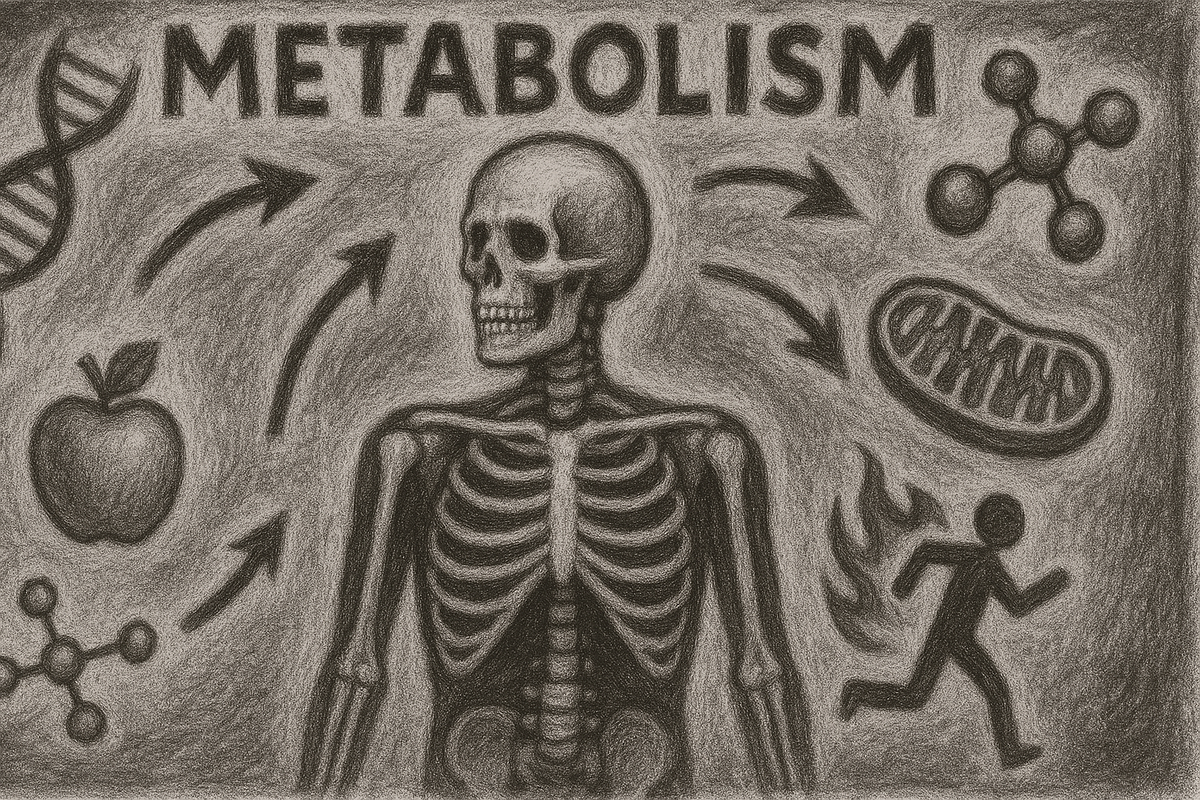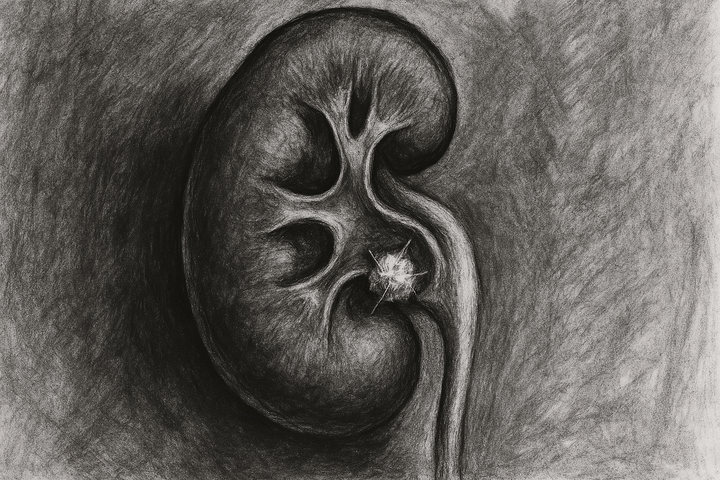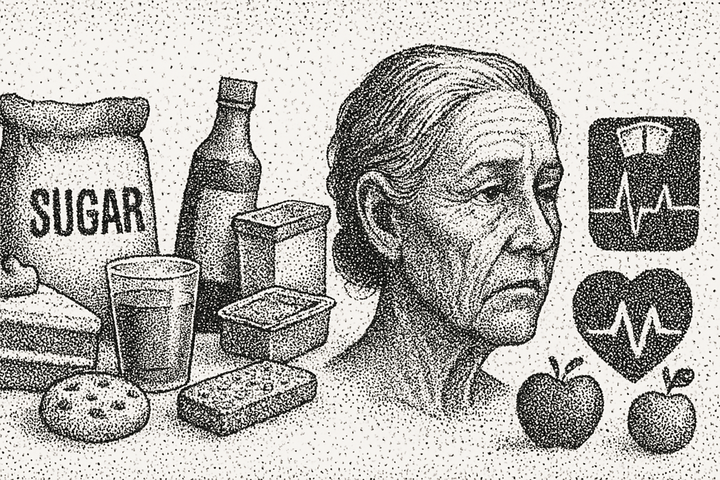Rev Up Your Body's Engine: Science-Backed Ways to Boost Metabolism

What is Metabolism?
Metabolism encompasses all chemical reactions in the body that convert food and drink into energy, supporting functions like breathing, cell repair, and physical activity. The basal metabolic rate (BMR) represents calories burned at rest, while total daily energy expenditure includes activity and digestion. Factors like genetics, age, muscle mass, and activity level influence metabolic rate, but lifestyle interventions can modulate it to some extent.
Research suggests metabolism can be influenced by diet, exercise, sleep, and hydration, though the magnitude of effect varies. This section reviews evidence-based strategies, highlighting academic sources and addressing controversies, such as the efficacy of supplements.
Detailed Strategies and Supporting Evidence
Protein Intake and Thermic Effect
Protein has a higher thermic effect of food (TEF) compared to carbohydrates and fats, with studies showing it can increase metabolic rate by 15-30% during digestion, versus 5-10% for carbs and 0-3% for fats. A 2019 study (Protein Intake) with 38 participants found that a diet with 25% calories from protein increased energy expenditure compared to 15%, supporting its role in boosting metabolism. Protein also prevents muscle loss during weight loss, preserving RMR.
- Application: Aim for protein sources like lean meats, fish, eggs, dairy, legumes, and nuts, targeting 0.7-1g per pound of body weight daily, depending on activity level.
- Considerations: Excessive protein may strain kidneys in those with pre-existing conditions, so consult a dietitian if needed.
Strength Training and Muscle Mass
Strength training builds muscle, which is more metabolically active than fat, increasing RMR. A 2022 review (Strength Training) in Obesity Reviews found a strong link between high muscle mass and metabolic rates, with dietary protein enhancing effects. Another 2018 study (Muscle Mass) confirmed resistance training increases RMR, particularly in combination with protein intake.
- Application: Incorporate 2-3 weekly sessions of exercises like squats, deadlifts, or bodyweight moves. Resistance bands or calisthenics are accessible options.
- Considerations: Start with light weights if new to training, and ensure proper form to avoid injury. Combine with protein for optimal results.
High-Intensity Interval Training (HIIT)
HIIT involves intense bursts (e.g., 30 seconds sprinting) followed by rest, increasing EPOC, which extends calorie burn post-exercise. A 2021 study (HIIT) found HIIT more effective for fat loss in aerobically fit women, with a 2020 study (HIIT Effects) noting increased fat oxidation.
- Application: Try 20-minute sessions alternating high-intensity and rest, using running, cycling, or bodyweight exercises.
- Considerations: HIIT may not suit beginners or those with joint issues; consult a trainer for modifications.
Sleep and Metabolic Regulation
Sleep impacts hormones like leptin (appetite suppression) and ghrelin (appetite stimulation). A 2018 study (Sleep Impact) found 4 hours of sleep per night for 5 nights reduced metabolic rate by 5%, while a 2023 study (Sleep Needs) emphasized 7+ hours nightly for adults 18-60, per CDC guidelines.
- Application: Maintain a consistent sleep schedule, limit screen time before bed, and create a dark, quiet environment.
- Considerations: Chronic sleep deprivation may exacerbate metabolic issues; address underlying sleep disorders with a professional.
Hydration and Thermogenesis
Water is essential for metabolic processes, with a 2016 study (Hydration) finding 500 mL increased metabolic rate by 30% for 40 minutes, primarily through warming the water. Another study (Water Effect) noted increased fat oxidation at rest, but the effect is temporary and not significant for long-term metabolism.
- Application: Drink 8+ cups (64 ounces) daily, more if active, and include water-rich foods like cucumbers or oranges.
- Considerations: Overhydration can dilute electrolytes, so balance intake with activity level.
Green Tea, Caffeine, and Supplements
Green tea contains catechins and caffeine, with a meta-analysis (Green Tea) finding 250 mg EGCG daily increased energy expenditure by ~100 calories. Caffeine also enhances fat oxidation, per a 2011 review (Fat Burners). However, a 2016 study (Spices) found capsaicin (from chili) offers only temporary boosts, not significant long-term.
Other supplements like carnitine or chromium show promise but lack robust evidence, per the same review. A 2010 study (Supplements Review) noted industry-driven claims often outpace science.
- Application: Drink 2-3 cups green tea daily or have coffee, but monitor caffeine intake for sleep effects. Avoid unproven supplements without professional advice.
- Considerations: Caffeine may cause jitters or insomnia; consult a doctor, especially with health conditions.
Additional Factors and Controversies
- B Vitamins: Involved in energy conversion, but a 2018 rodent study (B Vitamins) found limited direct impact on metabolism for weight loss, needing more research.
- Thyroid Hormones: Low thyroid function (hypothyroidism) lowers metabolism, with medications increasing it, per a 2023 review (Thyroid). This is medical, not lifestyle-focused.
- Stress: May affect eating and sleep, impacting metabolism, but links are unclear, per a 2016 study (Stress).
Controversy surrounds supplements, with many marketed as metabolism boosters lacking evidence. The 2011 review (Fat Burners) noted industry-driven growth outpaces science, urging caution. Always consult professionals for personalized advice, especially with underlying conditions.
Table: Summary of Evidence for Metabolism-Boosting Strategies
Practical Recommendations
For optimal results, combine strategies: eat protein-rich meals, engage in strength and HIIT exercises, prioritize 7-9 hours of sleep, stay hydrated, and consider green tea for a small boost. Avoid crash diets, as a 2023 study (Caloric Needs) notes severe calorie restriction can slow metabolism. Always consult a healthcare professional for personalized advice, especially with supplements or if you have health conditions.
Key Citations
- Protein Intake and Metabolism Study
- Strength Training and Metabolic Rate Review
- HIIT and Metabolic Health Research
- Sleep Deprivation and Metabolism Impact
- Hydration and Thermogenesis Study
- Green Tea and Energy Expenditure Meta-Analysis
- Spices and Temporary Metabolic Boost Research
- Fat Burners and Supplement Review
- Muscle Mass and Metabolic Rates Study
- HIIT Effects on Fat Oxidation Study
- Sleep Needs and Metabolic Function Study
- Water Consumption and Fat Oxidation Research
- B Vitamins and Metabolism Rodent Experiment
- Thyroid Hormones and Metabolism Review
- Stress and Metabolic Impact Study
- Caloric Needs and Dietary Guidelines
- Supplements and Weight Loss Evidence Review
Disclaimer: This blog post is for informational purposes only and does not constitute medical advice. Always consult a healthcare professional before making changes to your diet, lifestyle, or supplement routine.




Comments ()